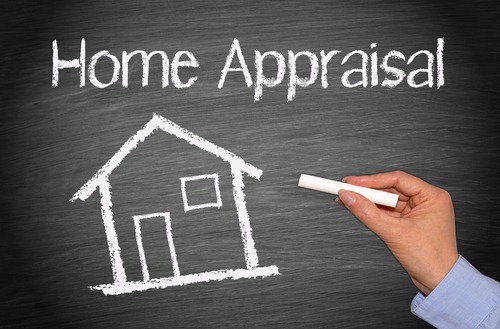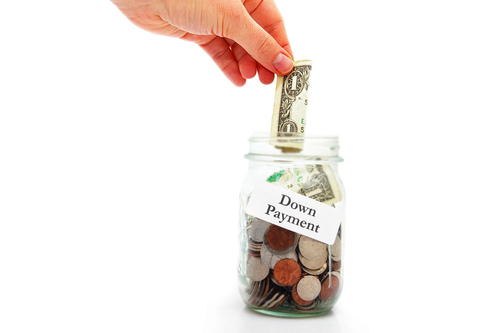
Not everyone qualifies for a mortgage loan, and if you think there’s a chance you won't qualify, you might be tempted to exaggerate or fudge information to become a more desirable candidate. A little white lie may result in an initial approval, but the lender will learn the truth. And unfortunately, the truth can jeopardize your mortgage approval. Lenders take a gamble with every home loan. Even if an applicant has a job and good credit, there's always a chance that he'll run into hardship and be unable to pay his mortgage at some point during the term. Lenders only approve those who meet their qualifications, and they don't take the information you provide at face value. Instead, the bank asks for supporting documentation and verifies all information presented. If a bank learns you purposely lied on your application or submitted false information, it may refuse to do business with you. Here are three little lies that can hurt your approval. Lying about your earnings Exaggerating or slightly inflating your income may not seem like a big deal. However, mortgage… Read more

It doesn't matter if you're buying a new home or a resale property, the home buying process can be stressful at best. The good news is that you can get through a purchase with ease. The trick to a smooth experience is advance preparation and knowing how these transactions work. 1. Fix your credit in advance Don't wait until you're ready to buy a house to get serious about credit. It takes time to rebuild a low credit score. If you’re thinking about buying a house in the next six to 12 months, now’s the time to pull your credit history and make needed improvements. Several issues can lower your credit score, such as credit report errors, paying bills late and carrying too much credit card debt. Order your credit report from AnnualCreditReport.com, and then check your file for accuracy and dispute any errors. Make sure you pay all bills on time and devise a plan to eliminate debt. 2. Spend less on a house than you can afford A mortgage pre-approval provides a pretty clear estimate of how much… Read more

The appraisal is a critical step in the home buying process. An appraisal is required by mortgage lenders and it estimates the value of a property. A mortgage lender will not lend more than a home’s worth, so the bank will order an appraisal from a licensed or certified home appraiser who’ll assess the property’s market value based on a number of factors, such as square footage, improvements and recent home sales. Sadly, some homebuyers and sellers don’t know how appraisals work, or understand how the appraisal can affect a real estate transaction. Whether you’re a first-time buyer or a repeat buyer, here are four things you need to know about appraisal. 1. How An Appraisal Differs from a Home Inspection Both a home inspection and a home appraisal are common practice when buying or selling a property, but there are differences between the two. With a home inspection—which is optional—a certified home inspector conducts an in-depth examination of the property from top to bottom. He looks for potential defects or problems with the roof, foundation, electrical system, plumbing, and… Read more

After the housing collapse, some mortgage lenders started requiring a 10% down payment for home purchases. Unfortunately, this new requirement made it nearly impossible for many to buy a home. The good news is that low down payment mortgages have made a comeback, and if you’re looking to buy a home, you can qualify with as little as 3% to 5%. This is an option when you don't have a 20% down payment. Twenty percent of a $200,000 purchase is $40,000, which isn’t realistic for the average homebuyer. Several mortgages have low down payment options, including FHA loans, Fannie Mae’s HomeReady and Conventional 97, and a standard conventional. These programs let you purchase a property with the least amount of upfront cash. Although an attractive option, a low down payment isn’t the rule, nor does it make sense for everyone. Benefits of a Traditional Down Payment Understandably, many homebuyers want to spend as little of their own money as possible on a home purchase. And yes, giving the bank a lot cash at once can be scary. For this reason… Read more

An underwater mortgage is one of the most stressful situations you can face as a homeowner. Owing more than the value of your property makes it harder to sell or refinance, and it can feel as if you’re stuck. Since it can take years to dig yourself out of a hole, it’s important to understand your options. 1. Be patient and wait it out An underwater mortgage isn’t the best situation, but the good news is that your property won’t be underwater forever. The real estate market fluctuates on a constant basis. Home prices can be down one year and up the next year. So if you have an underwater mortgage today, your situation can change considerably over the next few years. In addition, as you pay down your mortgage balance, the amount you owe the bank may become better aligned with the property’s value. You can also recover some of your equity by making additional mortgage payments, which helps pay down the principal faster. 2. Refinance through HARP Unfortunately, you won’t qualify for a traditional refinance when you're underwater.… Read more







